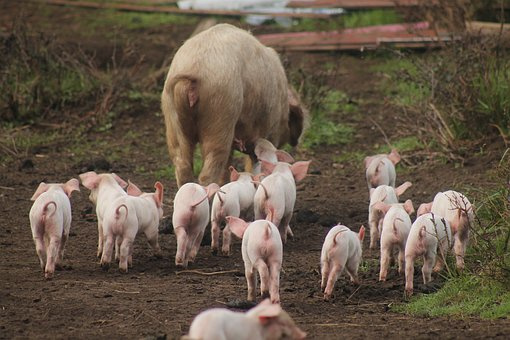
Event: Small-Scale Livestock Development and Extension Techniques Course
Venue: Indepth Research Services, Nairobi, Kenya.
Event Date : 11th – 15th June 2018
NITA CERTIFIED
INTRODUCTION
The rapidly growing demand for livestock products worldwide is brought about by human population pressure, growing income and urbanization. Land use and human population pressures are leading to intensification and expansion in many livestock production systems. In addition, expansion of cropping into drier areas is forcing pastoral livestock production systems to relocate into still more arid lands. As a result of these changes new pressures on the environment are developing or could emerge and, therefore, should be of concern.
Livestock make an important contribution to most economies. It produce food, provide security, enhance crop production, generate cash incomes for rural and urban populations, provide fuel and transport, and produce value added goods which can have multiplier effects and create a need for services. Furthermore, livestock diversify production and income, provide year-round employment, and spread risk. Livestock also form a major capital reserve of farming households. This training course is designed to provide a guideline to participants’ in small scale livestock production and management as a source of livelihoods.
DURATION
5 days.
WHO SHOULD ATTEND
This course is intended for various actors in the Agriculture Extension (Agricultural extension officers, senior agricultural officials and policy makers) working with communities, in governments, funding agencies, Research organizations and non-government organizations among others for Agriculture support activities and other Development programmes.
COURSE OBJECTIVES
By the end of the course, learners will be able to:
Understand the nutritional needs and feeds management for livestock
Gain insight on financial management in livestock development projects
Gain skills on livestock health management
Learn skills on the resources required for starting a livestock related projects
Understand various uses of the products and by products in the livestock production projects
Gain skills on technologies involved in livestock production
Gain knowledge on how to strengthen farmer participation in livestock projects
TOPICS TO BE COVERED
- Planning for Livestock Development Projects
- Livestock Nutrition and Health
- Animal Production Extension
- Farmers’ Institution Strengthening
- Role of Technology in Small-Scale Livestock Development
Visit our website for more details
HOW TO PARTICIPATE
Frequently Asked Questions (FAQs)
View related courses
Entrepreneurship and Inclusive Agribusiness Course
Integrated Soil Health and Fertility Management Course
Irrigation and Operational Maintenance Course
Agricultural Biotechnology Course
The most popular courses
Health System Decentralization Course
Scientific Writing, how to Prepare a Manuscript for International Journals Course
Participatory M&E for Rural Development and Community Managed Programmes Course
Mobile Phone Based Data Collection Using ODK Course
Crisis Preparation and Management Course
GIS and Remote Sensing for Epidemiology and Public Health Course
Strategic Financial Management Course
View Agriculture Development, Food Security and Livelihood Institute Course Catalogue
For any registration of 3 or more participants, we offer a discount of up to 25%.
Click here now to register
For further inquiries email outreach@indepthresearch.org or contact us on Tel: +254 715 077 817,
+254 731240802
ACCOMMODATION
Accommodation is arranged upon request. For reservations contact the Training Officer. Email: outreach@indepthresearch.org .
Mob: +254 715 077 817
PAYMENT
Payment should be transferred to IRES account through bank on or before C.O.B 4th June 2018.
Send proof of payment to outreach@indepthresearch.org .